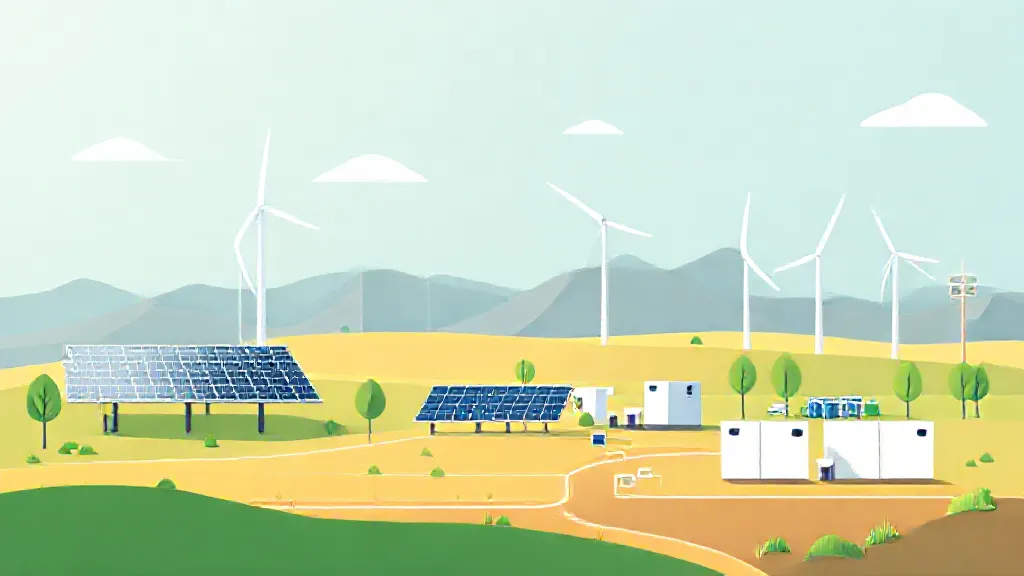The transition to renewable energy is essential for creating a sustainable future. However, one of the critical questions that arise is: what makes renewable energy reliable? Reliability in this context refers to the ability of energy sources to provide consistent and uninterrupted power supply. This article delves into the various factors that contribute to the reliability of renewable energy, including technological advancements, energy storage solutions, grid integration, and policy frameworks.
Technological Innovations Enhance Reliability
Technological advancements play a significant role in enhancing the reliability of renewable energy sources. For instance, solar photovoltaic (PV) technology has seen substantial improvements in efficiency and durability over the years. Modern solar panels can convert more sunlight into electricity, even under less-than-ideal conditions.
Wind energy technology has also evolved, with larger and more efficient turbines capable of generating electricity at lower wind speeds. These innovations ensure that renewable energy systems can produce power more consistently, thereby increasing their reliability.
Energy Storage: The Key to Consistency
One of the primary challenges of renewable energy is its intermittent nature.
Solar and wind energy production can fluctuate based on weather conditions and time of day. Energy storage systems, such as batteries, play a crucial role in addressing this issue. By storing excess energy generated during peak production times, these systems can provide power when generation is low.
For example, lithium-ion batteries, which have become increasingly affordable and efficient, allow for the storage of renewable energy, making it available for use during high demand or low production periods. This capability is vital for ensuring a reliable energy supply.
Grid Integration and Smart Technology
The integration of renewable energy into existing power grids is another critical factor in enhancing reliability.
Smart grid technology allows for better management of energy distribution, ensuring that power generated from renewable sources is efficiently utilized. Advanced monitoring systems can predict energy demand and adjust the supply accordingly, minimizing the risk of outages. Furthermore, decentralized energy systems, such as microgrids, can operate independently from the main grid, providing localized reliability and resilience against larger grid failures.
Policy and Regulatory Frameworks
Government policies and regulatory frameworks significantly influence the reliability of renewable energy. Supportive policies, such as feed-in tariffs, tax incentives, and renewable portfolio standards, encourage investment in renewable technologies. These frameworks can help stabilize the energy market and ensure that renewable energy sources are integrated into the energy mix.
Additionally, policies promoting research and development can drive innovation, further enhancing the reliability of renewable energy systems.
Diverse Energy Mix for Enhanced Resilience
A diverse energy mix is essential for ensuring the reliability of renewable energy. By combining various renewable sources, such as solar, wind, hydro, and biomass, energy providers can mitigate the risks associated with relying on a single source.
For instance, when solar production is low during cloudy days, wind energy may still be available, providing a complementary supply. This diversification not only enhances reliability but also contributes to overall energy security.
Community Engagement and Local Solutions
Community engagement is vital in developing reliable renewable energy solutions.
Local energy initiatives, such as community solar projects or wind cooperatives, empower residents to participate in energy generation. These localized solutions can enhance reliability by reducing dependence on centralized power systems. Moreover, community involvement fosters a sense of ownership and responsibility, encouraging sustainable energy practices and supporting the reliability of local energy systems.
Global Examples of Reliable Renewable Energy Systems
Several countries have successfully implemented reliable renewable energy systems. For instance, Denmark leads the world in wind energy, generating over 40% of its electricity from wind turbines. The country’s investment in energy storage and grid integration has made its renewable energy supply highly reliable.
Similarly, Germany's Energiewende program has focused on transitioning to renewable energy while ensuring a stable power supply through a mix of energy sources and robust grid management.
The Future of Reliable Renewable Energy
Looking ahead, the future of reliable renewable energy appears promising. Continued advancements in technology, coupled with supportive policies and community engagement, will likely drive further improvements in reliability.
As the world increasingly recognizes the importance of sustainable energy, investment in innovative solutions will be crucial. The combination of energy storage, smart grid technology, and a diverse energy mix will pave the way for a reliable, renewable energy future.
